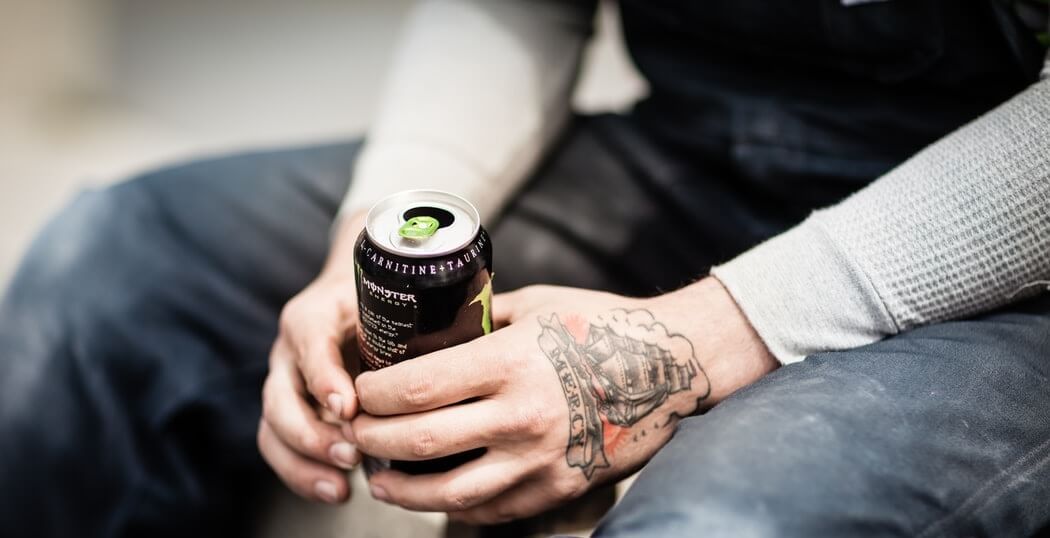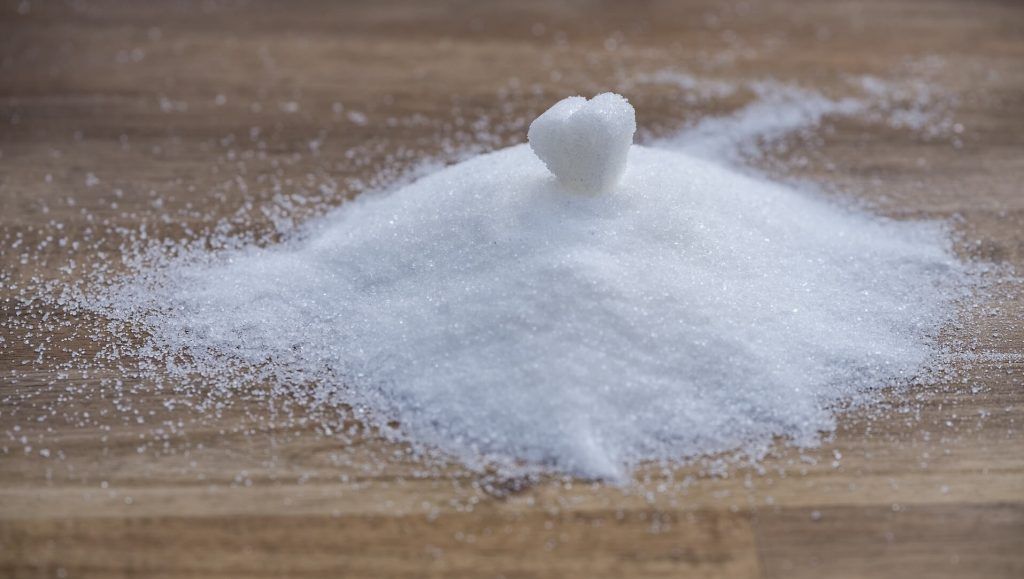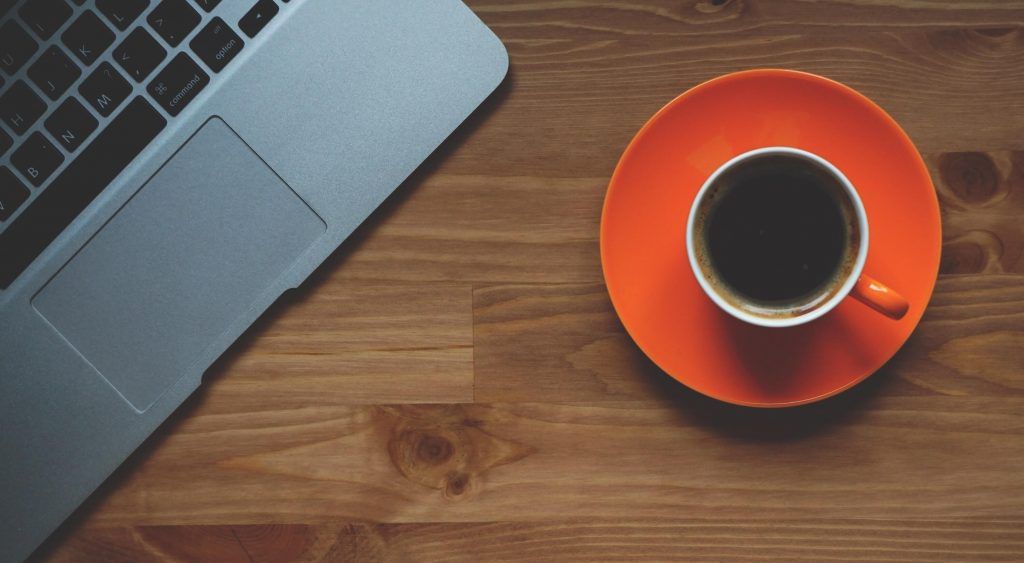
It might come as a surprise for some to learn that total global sales of energy drinks now surpass $50bn annually. For those under a certain age, however, this most likely won’t come as a shock at all.
Energy drinks have rapidly established themselves as a fixture of a ready-all-hours, fast-paced, and high-octane lifestyle. Or at least that’s what the marketing leads you to believe.
Promises of increased vitality, wakefulness, and productivity are commonplace. The leading brands jostle to associate themselves with daring sportsmen and successful trailblazers.
It’s a strategy that has paid off handsomely — the industry has seen explosive growth from the 1990s onwards. Nevertheless, there are many dissenting voices and opposition to caffeine-loaded energy drinks has emerged from policymakers and health professionals alike.
The concept of an “energy drink” is ultimately just a marketing concoction with no strict definition. Drinks branded in this way can vary enormously from each other. In general, though, they’re found in aluminum cans and combine an incredibly sweet taste with the stimulant caffeine among other ingredients.
1. Energy drinks don’t work
Food, water, oxygen, and sleep are among our life-supporting needs. However, we don’t think to call our overnight recuperation an “energy sleep”. Nor do we refer to our morning meal as an “energy breakfast”. It’s both ironic and a testament to the power of marketing that we do refer to caffeinated, sugar-packed drinks as “energy drinks”.
Indeed, the most egregiously unhealthy energy drinks may actively contribute to poor health in the same way that soda does.
Our ancestors appeared to get by fine without them, so why can’t we? Sometimes ancient wisdom — like emphasizing the importance of a good night’s sleep — is lost under a barrage of products that are simply easier to commercialize than a revitalizing rest.
No amount of caffeine will compensate for poor sleep or energy deficits fostered by stress, overwork, and modern distractions like screens. If a canned drink could somehow mimic the benefits of sleep or exercise then we might just be onto something. But alas, big business makes do with what we have.
Ultimately, leading a healthy lifestyle and enjoying high-quality sleep is the best (and only) route to “revitalization”. Caffeine may offer some fleeting stimulation but it does not compensate for poor choices.
No matter how great the hype, energy drinks don’t lead people to the promised heights of sporting or workplace success.
2. They contribute to poor health

Many people use energy drinks for their supposed ability to boost short-term performance in physical and/or mental work. Most of the drinks do contain significant amounts of caffeine — a stimulant that can prolong wakefulness and attention to a degree.
However, it isn’t just the caffeine content that is causing worry for health officials. As we’ll see below, caffeine may cause or worsen anxiety in predisposed people or when taken at excessively high doses.
The wider issue is that mainstream energy drinks are universally very sweet. This is compounded by a worrying trend in the industry toward larger cans and bigger serving sizes. For instance, Monster brand drinks retail in sizes of up to 24 fl oz.
A large majority of people consume carbonated, canned drinks in a single serving. In the process, they are ingesting approximately 75 grams of sugar. Studies have shown that a single 24oz serving of a typical energy drink can cause dysfunction in blood vessels.
Long-term excessive sugar intake is linked with diabetes, heart disease, and obesity. However, not all sugar intake is “the same”. Sweet energy drinks are harmful in a way that sugar found naturally in fruit isn’t. In fact, thanks to its combination of fiber, vitamins, and minerals, fruit consumption can actually help fight diabetes and obesity.
Furthermore, like many psychoactive substances, the body builds a tolerance to the effects of caffeine after repeated use. As greater servings of caffeine become necessary to maintain the stimulating effect, energy drink users become more likely to consume ever greater quantities of sugar.
Some people use energy drinks as a way of staving off hunger and tiredness, or as a fast alternative to a meal. In some cases, malnutrition and sleep deprivation can develop as a result of excessive use.
Unfortunately, it is hard in the modern world to maintain healthy patterns of sleep. A balanced lifestyle and good time management may end up victims to the ‘easy’ option of caffeine and sugar.
The irony, of course, is that energy drinks are marketed as a revitalizing elixir when, in reality, they increase the risk of obesity and long-term health problems.
3. They can cause anxiety in susceptible individuals
Contrary to the belief of some people, it is important to note that caffeine consumption isn’t necessarily unhealthy. In fact, it has been linked with both positive and negative effects on the human body. Therefore, it is important to analyze caffeine use with nuance and without resorting to hysteria.
However, whether or not caffeine consumption is a net positive or net negative depends significantly on the circumstances and even the genetic makeup of each individual.
In certain people, caffeine use can lead to the onset of anxiety or the worsening of pre-existing anxiety disorders. Caffeine-induced anxiety disorder is included in the DSM-5 as one possible class of substance use-related anxiety disorders. The DSM is the principal American authority on psychiatric diagnoses.
Interestingly, genetics are believed to play an important role in the way in which a person’s body processes caffeine. Studies in twins have shown that the anxiety-provoking side effects of caffeine vary between people. Sleep disturbances caused by caffeine also occur in some users more than others.
It is possible that variation in the gene responsible for metabolizing caffeine may cause some people to be at a greater risk of experiencing negative side effects.
This is troubling because we are in the midst of a mental health crisis among our youth. Poor sleep and anxiety can contribute to a worsening of mental wellbeing. It has been noted in some studies that there is an association between higher caffeine use and depression and anxiety among school students.
It is possible that some people use caffeine as a form of self-medication. However, this can be counterproductive if it leads to higher anxiety and the avoidance of medical care.
Caffeine may also pose a risk of exacerbating mental health problems if it leads to poor sleep habits.
4. They can disrupt sleep patterns
We have already noted that caffeine in energy drinks can cause anxiety and sleeplessness in some people. However, energy drinks are increasingly being linked with activities that can further undermine sleep quality.
In fact, some energy drink manufacturers are now making direct efforts to target young video game players. This trend has hastened as competitive and professional video game playing has become more commonplace.
Drinks companies have identified an opportunity to attract a young audience who increasingly see video games as a form of serious competition. Unfortunately, sugar-loaded energy drinks raise the risk of obesity in sedentary young people.
Another concern is that the combination of video games and energy drinks in the evening can multiply the risk of significant disruption of healthy sleep patterns.
Poor sleep in children can cause or exacerbate mental health issues, daytime sleepiness, poor academic performance, and circadian rhythm disorders. When combined with late-night video game sessions, the issue may be further magnified because the blue light emitted by screens interferes with the body clock.
This is significant because the regularity of sleep patterns (waking and falling asleep at approximately the same time each day) is believed to be equally as important as the total number of hours spent asleep.
5. They are expensive
We’ve examined the link between energy drinks and a number of health issues and these are clearly of paramount concern among health professionals.
However, there are also practical and budgetary issues when it comes to the drinks. This is particularly true when their use leads people to forgo balanced and nutritious meals.
For instance, a single 20 fl oz can of Red Bull costs up to $5 in convenience stores. This price is equivalent to a serving of many healthy, home-cooked meals.
While spending $5 or more per day on energy drinks won’t put a dent in some people’s budgets, it is enough to concern parents whose children may be spending an inordinate share of their allowance on an unhealthy product.
Drink manufacturers like to emphasize that caffeine isn’t the only energy-enhancing ingredient in their formulas. However, evidence of wider benefits from substances such as taurine is weak.
Even for responsible adults, there are more cost-effective ways to consume caffeine in order to prolong wakefulness and offset fatigue. For instance, tablets can be purchased in many stores for a fraction of the price of an energy drink.
We are not advocating the use of these alternative caffeine sources, but if you’ve decided on that course of action already then savings can run into the thousands per year.
6. Energy drink marketing can be deceptive
The expansion in demand for energy drinks has led dozens of companies to introduce their own competing products. Brands like Red Bull, Monster, Bang, Rockstar, and Venom are just a handful of the rivals fighting for the same customers.
Class-action lawsuits have been successfully filed against manufacturers regarding the claims made in support of their drinks. But really this is just the tip of the iceberg — lawyers for energy drink companies are usually able to skirt the edge of what’s acceptable without ever crossing the line.
Extreme sports and gaming are common focal points of ad campaigns. The implication, subliminal or otherwise, is that energy drinks fuel endurance, high performance, and success. It also props up the notion that the drinks are for ‘daring’ people who push the boundaries of what’s possible.
Impressionable young people are particularly likely to be influenced by these campaigns and governments in some countries have responded by exploring bans on sales to children.
Another significant issue is the use of artificial sweeteners in sodas and energy drinks. These “sugar-free” varieties are seen as healthier by many consumers but may carry their own risks and side effects.
The current social climate may just be the perfect storm for the rise of energy drinks. People are sleeping less and searching for a competitive edge in all aspects of their lives. These trends are ripe for exploitation by any brand emphasizing energy-enhancing effects.
7. We already have natural “energy” drinks

The concept of an energy-boosting elixir is an old idea that has been successfully repackaged for a 21st-century audience.
The Wikipedia page on energy drinks charts some of this history — even pointing out that Pepsi and Coca-Cola were originally marketed as energy-boosters when they were first released over 100 years ago.
The comparison between energy drinks and soda is an apt one because, in reality, energy drinks are essentially just sweet, carbonated, caffeine-containing beverages.
While drinks like coffee can also cause caffeine-related side effects, they are also much more likely to confer benefits on users. Unsweetened, black coffee is a particularly good alternative.
Fascinating research into caffeine metabolism suggests that genetic differences between individuals may explain why some people are more predisposed to anxiety and sleep problems after consumption.
In general, coffee contains more caffeine than tea. People who struggle with these side effects after coffee use may consider switching to green tea or even a caffeine-free detox tea for a gentler boost.
8. They may multiply the risks of other substances when used together
Caffeine is a safe substance and very rarely causes serious adverse effects when taken in moderation. However, concerns have been raised about the safety of energy drink and alcohol combinations.
The stimulant properties of caffeine are believed to partially mask the intoxicating effects of the depressant alcohol. In some instances, this may lead an individual to drink more than they otherwise would.
While mixing alcohol with energy drinks may lead you to feel more alert than you otherwise would, it doesn’t protect you from the potential harms of binge drinking.
Concerns over cases of injury, driving under the influence, and sexual assault led the FDA to ban caffeinated alcoholic drinks in the United States.
However, the practice of mixing energy drinks with alcohol remains popular. The Jägerbomb is one such concoction and has gained a reputation for its association with college students and binge drinking sessions.
Some scholars have argued that energy drinks can act as a gateway drug — paving the way for more serious forms of drug dependence to develop. These concerns and worries about caffeine’s behavioral effects have led politicians and school teachers to push for tighter regulation on the sale of energy drinks to children.
Although caffeine is generally not regarded to be a truly addictive substance, there are legitimate concerns that it may be an “addiction-lite” that increases the risk of later abuse of addictive substances.
9. They may fuel overwork, stress, and excessive technology use
Although caffeine and energy drinks are often used to stave off fatigue, they may ultimately worsen stress by fueling anxiety in some people.
The occasional use of energy drinks in healthy people is unlikely to cause serious side effects. However, for a minority of people, the drinks may form one component of an unhealthy lifestyle that revolves around excessive nighttime activity and poor sleep.
For instance, one study of American schoolchildren discovered a link between caffeinated beverages and staying awake well into the night while using technology. Caffeine consumption was on average 76% higher among students who fell asleep in school.
Difficulty falling asleep on weeknights can lead to excessive daytime sleepiness — in turn reducing young people’s ability to stay alert and functional during class.
High caffeine intake has also been identified as a risk factor associated with anxiety and depression.
The evidence points to a link between energy drinks and excessive use of technology at night in young people. These behaviors may, in turn, reduce the ability of young people to function properly during the day.
